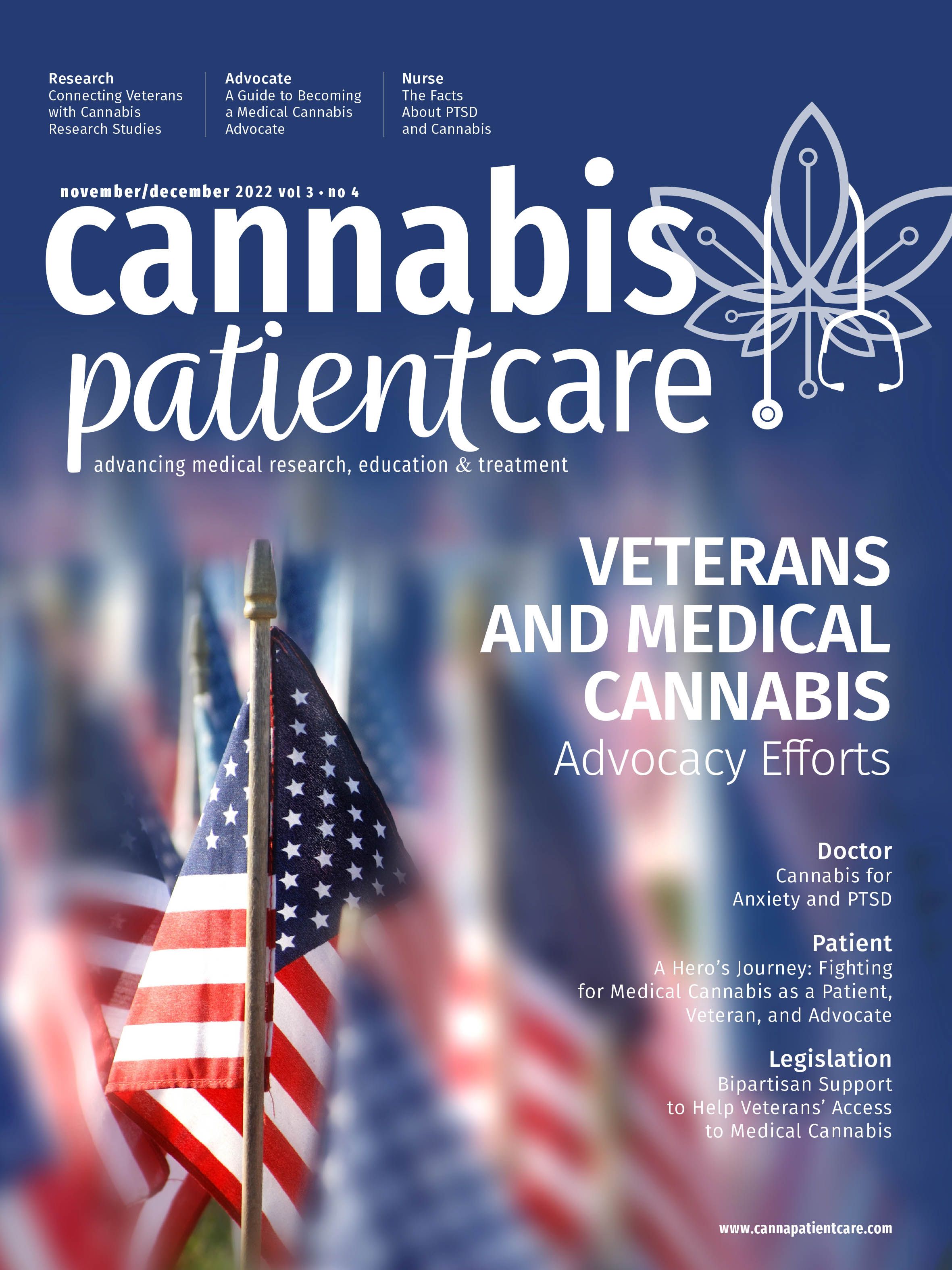The Facts About PTSD and Cannabis
Although in-depth research lags due to its current scheduling, tetrahydrocannabinol (THC) and cannabidiol (CBD) remain increasingly popular treatment options for those struggling with the effects of trauma.
In recent years there has been increased attention focused on the potential use of cannabis in the treatment of post-traumatic stress disorder (PTSD). Although many PTSD patients report that cannabis has helped with their condition, research backing up these assertions is still lacking. This column will examine the facts and how cannabis is becoming an increasingly popular treatment for PTSD.
To better understand the relationship between cannabis and PTSD, it is important to know what PTSD is and what symptoms accompany a diagnosis. PTSD is a psychological disorder that individuals may develop after experiencing or witnessing a traumatic event such as war, natural disasters, or domestic and sexual abuse (1). The impact of these events live with these individuals for years and maybe their entire lives with recurring, disturbing thoughts, visions, and feelings from the experience plaguing the victims with seemingly no end in sight.
However, some people diagnosed with PTSD have found solace in cannabis and say that using the plant helps ease intense anxiety and depression. It comes as a welcomed relief for those who have spent years cycling through pharmaceuticals trying to find the right treatment. Living day to day without the right treatment and help can feel like a never-ending uphill battle, making daily tasks and normal social interactions seem impossible. Which is exactly why cannabis legalization has felt so transformative for those living with PTSD. Accessibility and greater acceptance of cannabis are enabling people to experiment with cannabis like never before, in the hopes of gaining more control over their lives. In particular, victims of sexual abuse (2) and veterans are two groups that say cannabis helps them relieve anxiety, flashbacks, and depressive episodes that could otherwise consume their minds.
Although human trial studies backing up these assertions are sorely lagging, you can find a growing number of meta-analyses and animal studies for PTSD (3) on platforms like Cannakeys. One study (4) found that cannabis users reported a greater decrease in the severity of their PTSD symptoms. The data also showed that patients consuming cannabis were 2.5 times as likely to no longer meet the diagnostic criteria for PTSD as those patients in the study who did not use cannabis. The study suggests that in activating the endocannabinoid system (ECS), which regulates our mood, memory, emotions, sleep, and eating patterns, cannabis may help individuals find relief from their PTSD symptoms. Unfortunately, this study was not randomized, and the participation pool was too small to make a definitive conclusion on the efficacy of cannabis use to treat PTSD.
In addition, these small trials (5) have shown that cannabidiol (CBD) has had significant positive effects for those with PTSD all without the psychoactive properties of tetrahydrocannabinol (THC). Since CBD products are currently available in some capacity in every state except for three, its use could be a great option for those considering cannabis treatment. However, the best results typically come from a combination of both medication and psychotherapy, so if one wishes to try cannabis as a means of medication, it is recommended that therapy is sought out as well.
The results of these small studies demonstrate how urgently further research is needed. Further randomized control trials will need to be conducted to get a better understanding of the relationship between cannabis and PTSD. There is good news though, as more states move toward legalization, funding should be more accessible allowing for structured clinical trials to be conducted.
Since cannabis for medicinal purposes is still a relatively new field of research, there is room for improvement in the way its effects are studied in real-world applications. Nevertheless, hope is on the horizon as there has been a significant push in recent years to create credible studies and cases to showcase the numerous benefits cannabis has on treating mental disorders such as depression, anxiety, and PTSD.
References
- https://psychiatry.org/patients-families/ptsd/what-is-ptsd.
- https://missgrass.com/blogs/sex/cannabis-and-sexual-trauma.
- https://cannakeys.com/thc-cbd-for-post-traumatic-stress-disorder/.
- https://www.ncbi.nlm.nih.gov/pmc/articles/PMC8222769/#:~:text=77.2%25%20of%20the%20patients%2C%20had,not%20changes%20in%20PTSD%20symptoms.
- https://www.medicalnewstoday.com/articles/cbd-for-ptsd#treating-ptsd-with-cbd.
About the Author

Katherine Golden is a registered nurse and CEO, executive director, and founder of Leaf411, a 501(c)(3) nonprofit organization founded in 2019 with a mission to provide education and directional support to the general public about the safe and effective use of cannabis (marijuana and hemp). For more information or to schedule a consultation with a cannabis-certified nurse, call 844-LEAF411 (844-532-3411) or visit leaf411.org.

Bridging the Gap Between Patient and Medical Cannabis: One Nurse Steps Up to the Challenge
February 16th 2023A major focus area when it comes to medical cannabis is patient and healthcare education, or rather the lack of that education and rampant misinformation. When Megan Mbengue, BSN, RN, CHPN, saw this gap in educational resources firsthand for people who are looking to use cannabis as a treatment, she decided to launch Trusted Canna Nurse with a mission to break stigma through education. Voted a Cannabis Nurse Entrepreneur of the Year by Cannabis Nurses Networks in 2022, Mbengue and her team offer cannabinoid education, consultations, and a line of products for the spectrum of chronic illnesses. In this interview, Mbengue shares how and why she provides guidance as a cannabis nurse for symptoms of conditions such as ADHD, cancer, autism, chronic pain, and more. She also describes the difficulties presented by the lingering stigma of cannabis and explains her hopes for the role of nurses in medical cannabis.